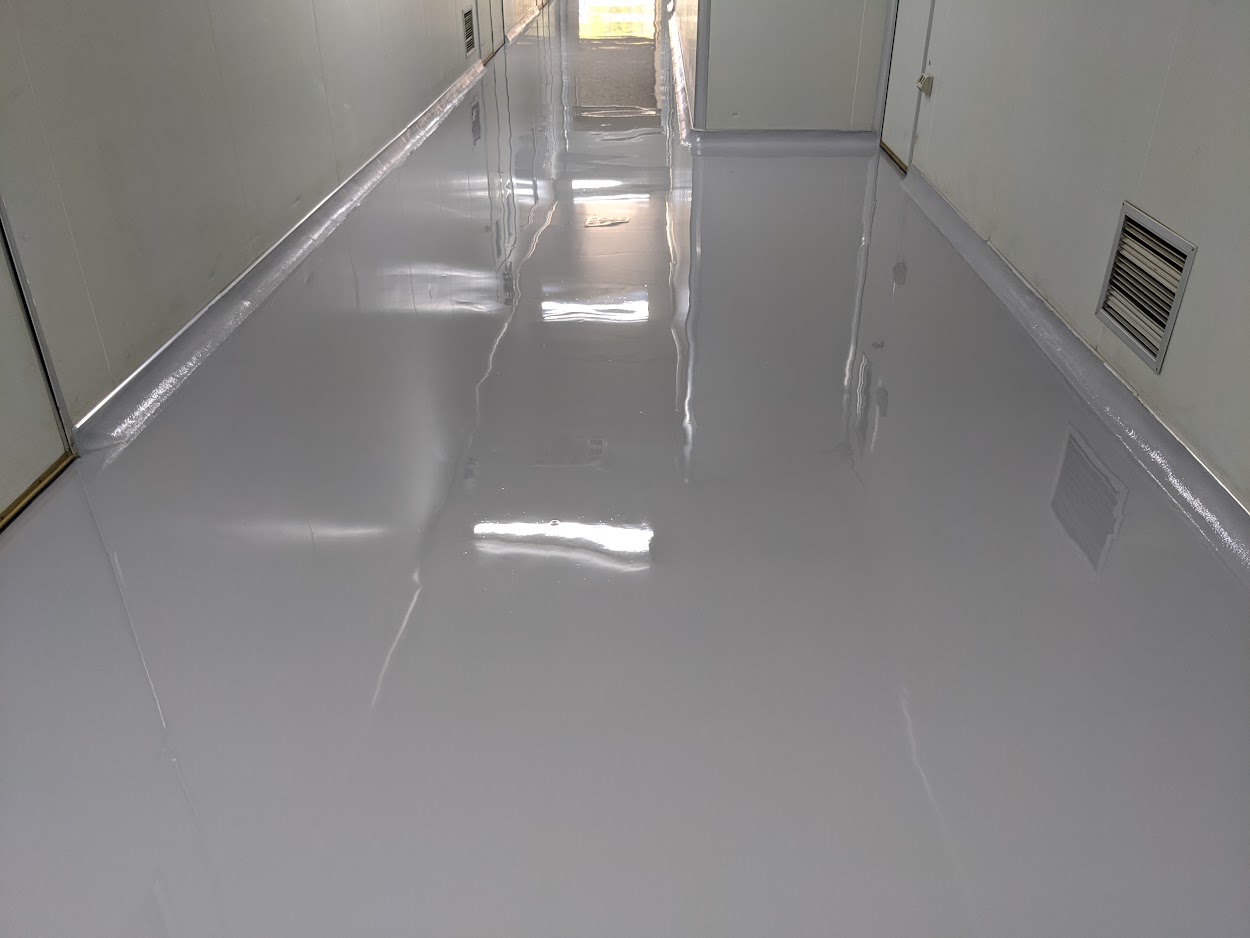Epoxy flooring has become a preferred choice for both residential and commercial spaces in Detroit due to its exceptional durability, easy maintenance, and versatile design options. These floors are known for their seamless, glossy finish that can elevate any interior space. However, one common concern that arises among potential users is the issue of slipperiness. In this article, we will delve into the truth behind whether epoxy floors are indeed slippery or not and explore the measures that can be taken to mitigate any slip hazards.
The Nature of Epoxy Flooring
Before we discuss slipperiness, it’s essential to understand what epoxy flooring is and why it has gained immense popularity in Detroit. Epoxy floors are made by combining epoxy resin and a hardening agent, resulting in a chemical reaction that forms a rigid, durable, and high-strength surface. These floors can be applied over existing concrete or other suitable substrates, providing a seamless and glossy finish.
Addressing the Slipperiness Myth
There is a misconception that epoxy floors are inherently slippery due to their glossy appearance. However, it is vital to clarify that epoxy flooring, by itself, is not particularly slippery. The level of slip resistance largely depends on the type of epoxy used, the additives incorporated into the mixture, and the finishing techniques employed during the installation process.
Factors Influencing Slipperiness
Surface Texture: The texture of the epoxy floor plays a significant role in determining its slip resistance. A smooth, untextured surface may be more prone to slipping, especially when wet. On the other hand, adding specific aggregates or grit to the epoxy coating can enhance traction and reduce the risk of slipping.
Environmental Conditions: Slipperiness is more likely to occur on any flooring, including epoxy when exposed to moisture, water, or spills. In high-humidity or wet areas, epoxy floors can become slippery, making it essential to address these conditions to minimize the risk of accidents.
Coefficient of Friction: The coefficient of friction is a measure of the slip resistance of a surface. The higher the coefficient, the less slippery the floor is. Various epoxy formulations can achieve different coefficients of friction, and selecting the right one for specific environments is crucial.
Enhancing Slip Resistance
Adding Aggregates: Epoxy floors can be customized by adding aggregates like aluminum oxide, silica sand, or other materials during the installation process. These aggregates create a textured surface, enhancing slip resistance and providing better traction underfoot.
Anti-Slip Sealers: Applying an anti-slip sealer over the epoxy floor can significantly improve slip resistance. These sealers create a rougher surface and work well in areas where water or moisture is common.
Topical Coatings: Topical coatings with anti-slip properties can be applied over the cured epoxy floor. These coatings act as a sacrificial layer that protects the epoxy surface while increasing slip resistance.
Regular Maintenance: Proper and regular maintenance is essential to ensure the slip resistance of epoxy floors. Promptly cleaning spills and debris will prevent any potential hazards and maintain the floor’s performance over time.
Epoxy Flooring Applications and Slip Resistance
Residential Spaces: In residential settings, epoxy floors are often installed in garages, basements, kitchens, and bathrooms. For these areas, it is crucial to consider slip resistance, especially in places where water or moisture may be present.
Commercial and Industrial Spaces: Epoxy floors are widely used in commercial and industrial settings due to their durability and resistance to heavy foot traffic. In such spaces, slip resistance is of utmost importance to ensure the safety of employees and customers.
Professional Installation and Consultation
To achieve the desired level of slip resistance for epoxy floors, it is highly recommended to seek the services of a professional epoxy flooring company in Detroit. Experienced installers can assess the specific requirements of your space, recommend suitable epoxy formulations, and apply the necessary techniques to enhance slip resistance.
Epoxy floors are not inherently slippery, and their slip resistance can be tailored to suit various environments. By choosing the right epoxy formulation, incorporating appropriate additives, and considering the environmental conditions, you can enjoy the many benefits of epoxy flooring while ensuring a safe and slip-resistant surface for your home or business. To make the most of your investment in epoxy flooring, always consult with a reputable epoxy flooring company in Detroit to receive expert advice and professional installation services.
Key Takeaways:
- Epoxy floors are popular in Detroit due to their durability, easy maintenance, and customizable design options.
- The myth that epoxy floors are inherently slippery is not entirely accurate. Slipperiness depends on various factors, such as surface texture, environmental conditions, and the coefficient of friction.
- Slip resistance can be enhanced by incorporating specific measures during installation, such as adding aggregates, using anti-slip sealers, applying topical coatings, and practicing regular maintenance.
- In residential settings, it is essential to consider slip resistance in areas prone to water or moisture, like bathrooms, kitchens, garages, and basements.
- In commercial and industrial spaces, prioritizing slip resistance is crucial to ensure the safety of employees and customers, especially in high-traffic areas.
- Seeking the services of a professional epoxy flooring company in Detroit is vital to achieving the desired level of slip resistance. Experienced installers can assess the space’s specific requirements and recommend suitable epoxy formulations for optimum safety and performance.
- In conclusion, the right techniques and materials can make epoxy floors slip-resistant. By addressing slip concerns and taking proactive measures, epoxy flooring remains an excellent choice for both residential and commercial spaces in Detroit.


Leave A Comment